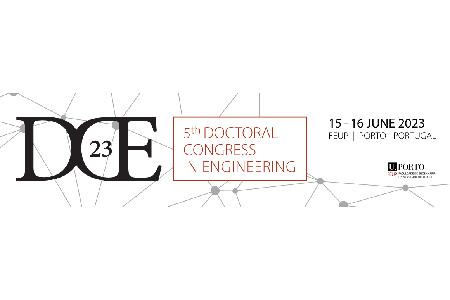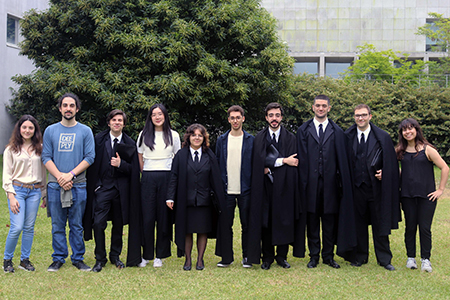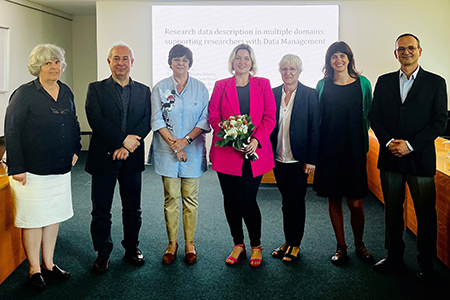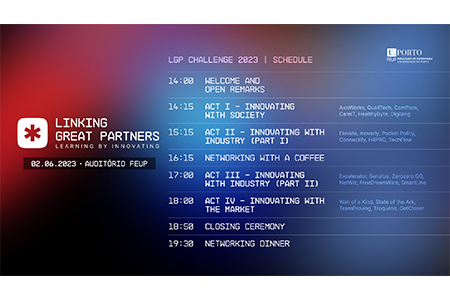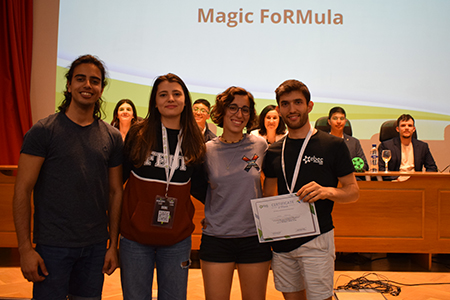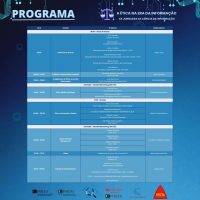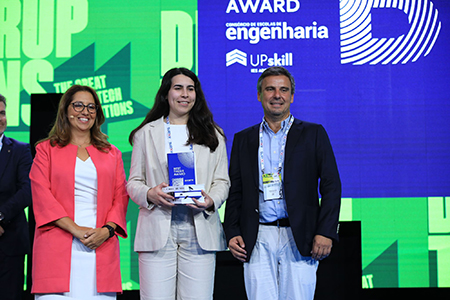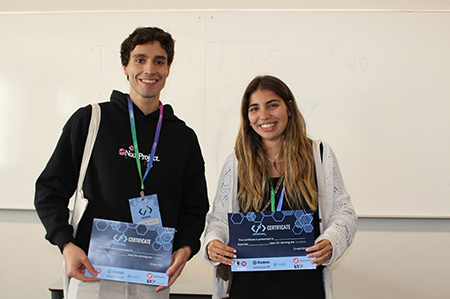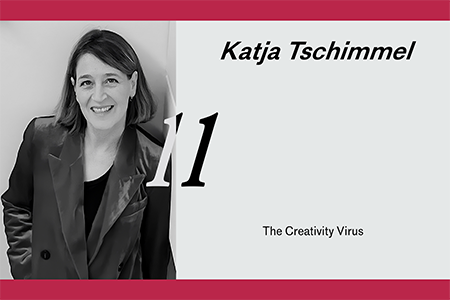The 5th edition of the Doctoral Congress on Engineering (DCE) will take place at FEUP on June 15 and 16, with this program.
The Symposium on Informatics, integrated in the event, will take place Friday, the 16th, in B034, with the co-organization of ProDEI, PDMD and MAP-i, where some of the ongoing research work of the 3 doctoral programs will be presented.
The Keynote: Digital dreams, real thrills: unleashing the power of XR in performing arts and beyond, conducted by Prof. António Baía Reis (PDMD Alumnus), will take place right after the opening session.
Abstract: As virtual worlds expand and develop, the integration of live performance and XR technologies becomes a prominent aspect not only in the arts and entertainment sector, but also within corporate and various other industries. The Covid-19 pandemic has accelerated the adoption of immersive experiences and virtual platforms, creating a diverse array of live performances and interactive moments. Groundbreaking productions from the Royal Shakespeare Company, Ferryman Collective, Double-Eye Studios, and La Cuarta Pared VR have paved the way, while spontaneous events like poetry slams on VR Chat or Rec Room continue to gain traction. In this presentation, XR researcher and performer António Baía Reis will delve into the Avatarium method, a work in progress that aims to explore the ecosystem of virtual worlds and their implications for the future of performing arts and beyond. By identifying unique challenges and opportunities, we will uncover the potential of digital performance to transform not only arts and culture but also reshape how corporations and various industries engage with virtual realms.
Bio: António Baía Reis is an interdisciplinary university professor, researcher, and artist with an unwavering passion for extended reality (XR) and interactive media, along with their boundless potential to connect with broader society. He holds a BA in International Relations, a Professional Acting Diploma, an MA in Communication Sciences, and a practice-based PhD in Digital Media. The latter was completed in collaboration with the University of Porto and Stanford University, focusing on XR, creative processes, and social change. With a diverse artistic background spanning professional acting, music, and multimedia art for over 10 years, he has been developing a creative and research portfolio at the intersection of digital media, VR, performance, experimental music and film, and art installations. Having prior experience in digital media and the arts and cultural industry, including executive-level positions such as his role as Academic Executive Director at the Los Angeles-based company Umaya, where he was involved in multidisciplinary teams collaborating with brands such as Loewe, Nvidia, AMC, Orange, Vodafone, Telefonica, and MasterChef, Reis regularly shares his knowledge in XR, digital media, communication, the arts, and their interconnected fields across various sectors. Currently, he is an Invited Assistant Professor at both Universidad Complutense de Madrid and NOVA University of Lisbon, where he shares his expertise in digital and emerging media at the postgraduate level. He also leads research on emerging media and communication as an integrated PhD researcher of the Innovation on Digital Media research lab at Universidad Carlos III in Madrid. As the Course Director for the “Live Performance in the Metaverse” course at the Multiverse Institute for Arts & Technology (MIAT) in Milan, he mentors students in designing and executing live performances using VR and other innovative technologies. Additionally, he is the founder, stage director, and VR actor of La Cuarta Pared VR, a pioneering virtual reality theater collective based in Madrid that explores live acting and performance in virtual realms. Recent awards and special achievements include receiving a MSCA Marie Curie Postdoctoral Fellowship in 2021 for his groundbreaking project aimed at enhancing science communication through immersive media arts. As a published author in leading scientific journals and the Director and Editor-in-Chief of the academic journal Cinema & Territory, as well as a member of the editorial board of the Q1 journal Media Practice and Education, Reis continues to contribute to scholarly discourse. More at www.antoniobaiareis.com
The program of the session can be seen here.
